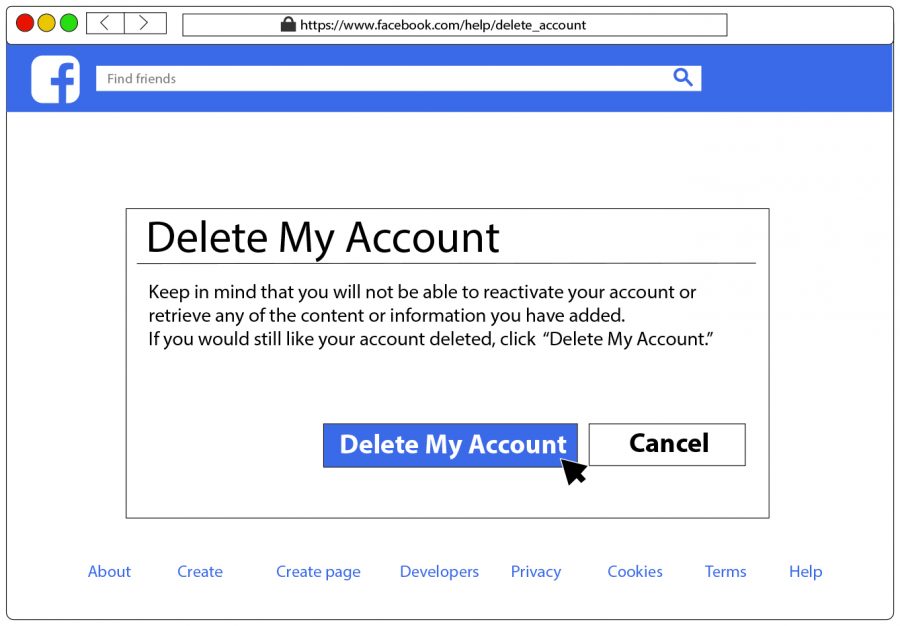Do privacy laws exist in cyberspace? Illinois joins lawsuit against Facebook, Cambridge Analytica over alleged data breach
Do privacy laws exist in cyberspace? Illinois joins lawsuit against Facebook, Cambridge Analytica over alleged data breach
April 2, 2018
Cook County State’s Attorney Kim Foxx has filed a lawsuit against Facebook and Cambridge Analytica on behalf of the state of Illinois, alleging the companies violated an Illinois fraud law.
Cambridge Analytica is a British political consulting firm hired by then-candidate Donald Trump during the 2016 presidential election. The lawsuit alleges Cambridge Analytica used fraudulent and deceptive practices to gain information on 50 million Facebook users who took an online “personality quiz.” The data was used to create “psychographic profiles” on American voters to influence the election, according to a March 26 press release.
Cambridge Analytica identified “the most persuadable voters” and targeted them with so-called “fake news” on various platforms, the lawsuit states.
The data was not used only for purposes of motivating enthusiastic Trump supporters, or even to target and convince skeptical or undecided voters, the lawsuit claims. Rather, Cambridge Analytica used its data to engage in a broad voter suppression campaign to discourage supporters of Trump’s opponent, Hillary Clinton, from voting by directing “Defeat Crooked Hillary” advertisements to certain profiles.
Dmitry Epstein, an assistant professor of Digital Policy in the Department of Communication at University of Illinois at Chicago, said such lawsuits have shifted society’s vague ideas about privacy into something more concrete.
Consumer privacy has become the inevitable currency of social media, Epstein said.
“Nobody likes to be manipulated or controlled,” he said. “Since there is no federal regulation in regard [to online privacy], states have to take action.”
Illinois has one of the strictest privacy regulations in the U.S. with the established in 2008, which limits the ability of companies to collect biometric information about people, such as facial recognition and fingerprints.
This is not the first time officials in the state have taken action against a data and privacy breach.
In September 2017, Chicago sued Equifax on behalf of Chicagoans, whose sensitive data was compromised in a widespread breach. Then in November 2017, Chicago and Cook County filed a joint lawsuit against Uber after it was revealed that more than 57 million drivers’ and customers’ data was stolen in a 2016 hack.
“[The lawsuit] only treats the symptom of the real issue, which is our relationship with social media and the lack of privacy surrounding it,” Epstein said. “We are just scratching the tip of the iceberg in terms of private information that is owned by large internet companies, like Facebook, Google, Amazon and Apple.”
Tony Fargale, a senior business and entrepreneurship major, said he has seen posts for a campaign to delete Facebook but thinks it will not solve the problem.
“Because we are digital natives, the only way to not have your information bought and sold is to not have an internet connection,” Fargale said. “I just don’t know how a checks and balances system could be in play in this digital space.”
Facebook should be regulated by the government in some capacity, Fargale said.
“We should all be okay with the idea that if we willingly give up our information it is going to be be used for marketing and advertising,” Fargale said. “The part that I have a big issue with is how that influences government officials. It bothers me that my data was being used to manipulate elections here and in foreign countries.”
Cook County is being represented in the suit by Chicago law firm Edelson PC, which has filed privacy lawsuits against Facebook and other tech companies, including Google and Netflix. The suit asks that both companies be fined $50,000 for each Illinois user whose data was accessed.
“We need to understand as citizens how the internet is designed, regulated and used,” Epstein said. “We have enjoyed this ignorant bliss for a while [because] using technology is convenient. Internet governance is the new civics, and it should become a more significant part of the curriculum.”








